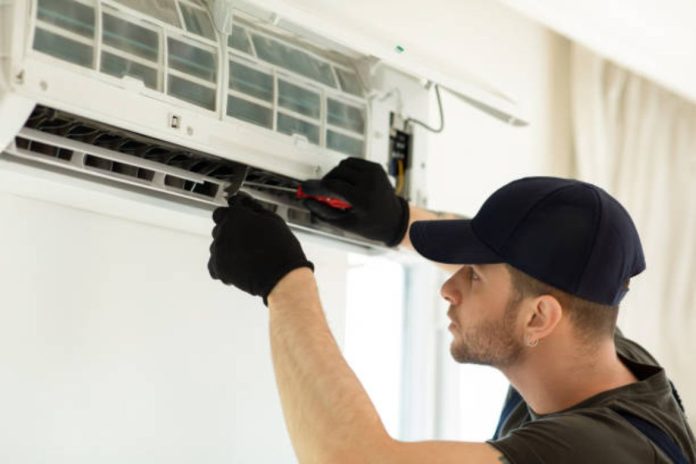Air conditioning keeps your home cool and comfortable, but when something goes wrong, it can be frustrating. For reliable and energy-efficient cooling solutions, Green Cool offers expert services to keep your system running smoothly. Here are some of the most common AC problems explained, along with their causes and solutions.
1. AC Not Cooling Properly
If your air conditioner is running but blowing hot air instead of cool air, several issues could be the cause. Dirty air filters, low refrigerant levels, or a faulty thermostat can all affect cooling performance. In some cases, warm air from outside can enter through leaks or poor insulation, further reducing efficiency.
What to do:
- Replace air filters if they are clogged or dirty.
- Ensure the thermostat sensor is working correctly and set to the desired temperature.
- Contact an HVAC professional if refrigerant levels are low, as refrigerant leaks require expert handling.
- Check for air leaks and improve insulation to prevent warm air from affecting cooling performance.
2. Weak Airflow
Poor airflow reduces your air conditioning system’s efficiency and makes rooms feel warmer.
Possible causes:
- Blocked air vents.
- Clogged air filters restricting air inside the ducts.
- A failing blower fan or blower belt.
How to fix it:
- Keep air vents clear and unblocked.
- Regularly clean or replace air filters to prevent dirty air from circulating.
- Schedule an air conditioning unit serviced by an HVAC technician.
3. Making Strange Noises
Banging, buzzing, or whistling noises from your AC unit often indicate mechanical problems.
Common reasons:
- Loose wiring or faulty electrical components.
- A worn-out blower fan or compressor failure.
- Debris inside the outdoor unit or indoor unit.
Steps to take:
- Turn off the AC unit and inspect for visible obstructions.
- Tighten any loose wiring or connections inside the control panel.
- If the noise persists, consult an HVAC technician.
4. Leaking Water
Leaks around your air conditioning unit can lead to mould growth and water damage.
Why it happens:
- A clogged condensate drain or drain pipe.
- A cracked drain pan.
- Frozen evaporator coil causing excessive condensation.
Prevention and solutions:
- Clean the drain line to prevent blockages.
- Check the drain pan and replace it if necessary.
- Ensure proper airflow to prevent the evaporator coil from freezing.
5. AC Running Constantly
An AC system that never shuts off increases energy consumption and may indicate a bigger problem.
Potential causes:
- A faulty thermostat stuck at the wrong setting.
- Insufficient refrigerant causing inefficient heat exchange.
- Direct sunlight heating up the indoor unit, making it work harder.
What you can do:
- Adjust the thermostat to a reasonable temperature.
- Check for refrigerant leaks and schedule a professional repair if needed.
- Block direct sunlight with curtains or blinds.
6. AC Won’t Turn On
If your AC won’t start, it could be an issue with the power supply, circuit breaker, or electrical systems.
Troubleshooting steps:
- Check for a tripped circuit breaker and reset it if needed.
- Test the power supply to ensure the air conditioning unit is receiving electricity.
- If electrical connections seem faulty, contact an HVAC technician to prevent an electric shock.
7. Bad Smells from AC
Unpleasant smells can indicate mould, burnt wiring, or stagnant water inside the system.
How to address it:
- Clean or replace air filters regularly to avoid musty smells.
- Inspect the drain line and condensate drain for blockages.
- If you smell burning, switch off the unit immediately and call a professional.
8. Increased Energy Consumption
If your air conditioner is using more energy than usual, there could be an underlying issue.
Potential reasons:
- Dirty filters reducing airflow and efficiency.
- A malfunctioning thermostat sensor causing incorrect readings.
- An overworked compressor due to insufficient refrigerant.
How to improve efficiency:
- Keep the unit’s filter clean to ensure proper airflow.
- Schedule regular maintenance with an HVAC professional.
- Upgrade to an energy-efficient model if your AC is outdated.
Keep Your AC Running Smoothly
Regular maintenance is key to preventing common air conditioner problems. Clean or replace air filters monthly, schedule an air conditioning unit serviced annually, and keep the outdoor unit free of debris. Addressing minor AC problems early can help you avoid costly repairs and keep your air conditioning system running efficiently all summer. Ensuring that your AC unit is blowing cold air rather than warm air is essential for maintaining a comfortable indoor environment.









